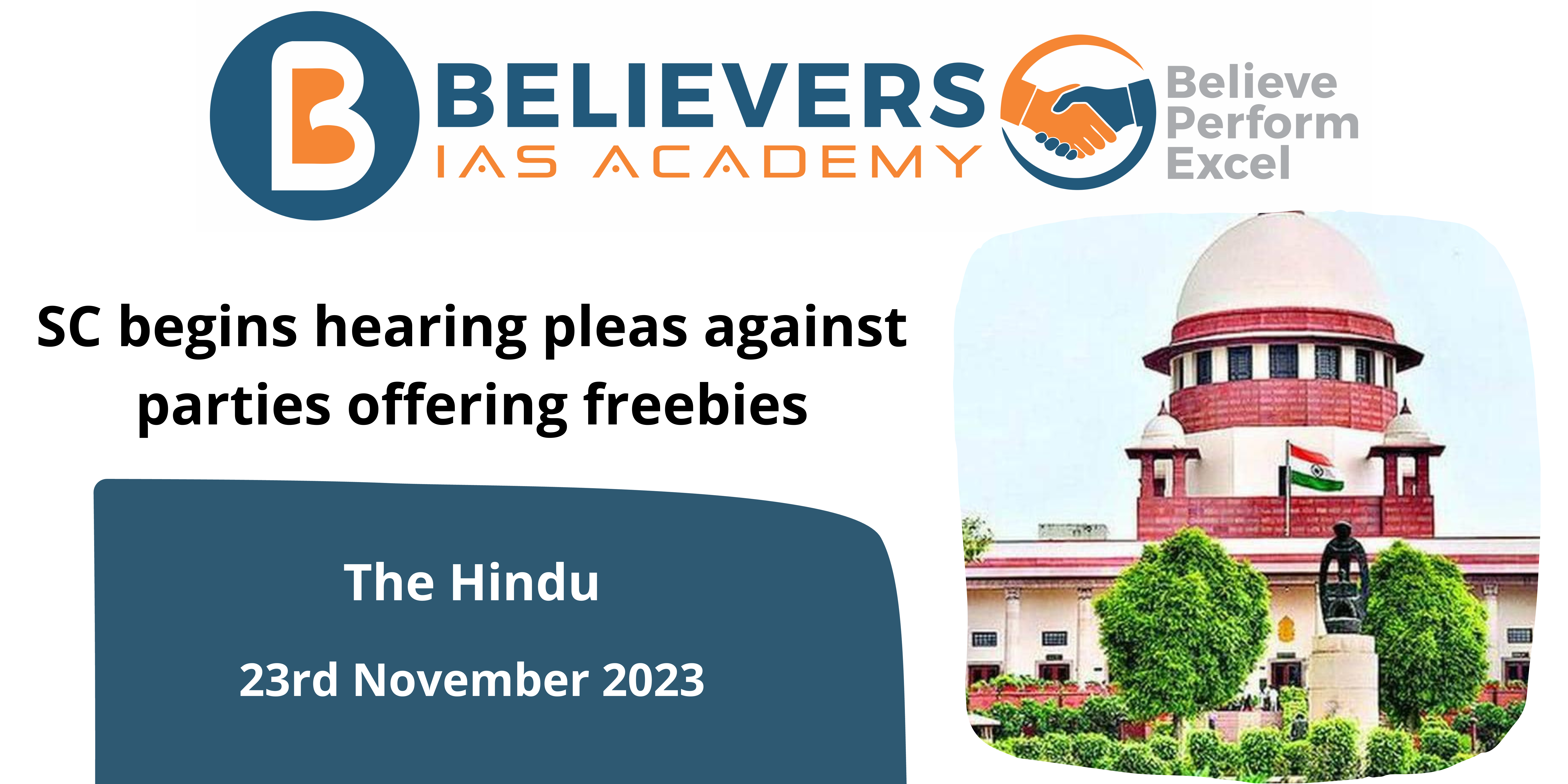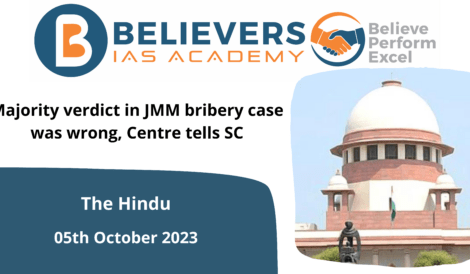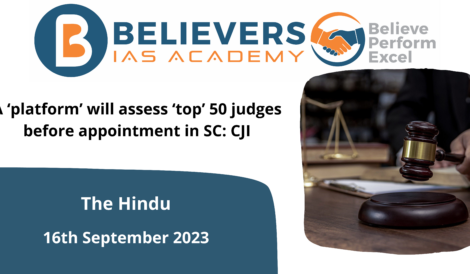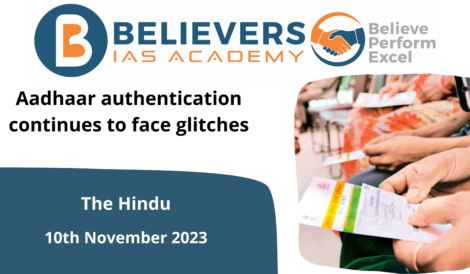SC begins hearing pleas against parties offering freebies
Context
The Supreme Court began hearing petitions on Wednesday seeking a judicial judgment that nonsensical incentives offered by political parties to entice voters during election season are a “corrupt practice.”
What are freebies?
In politics and elections, freebies are goods, services, or benefits delivered by governments or political parties to the people at no direct cost or penalty. These freebies are often distributed as part of political campaigns or as a means of gaining popularity and support among the people.
What are the different forms of Freebies?
- Subsidies: Governments may provide subsidies on basic products such as food, fuel, or housing, lowering consumer costs.
- Cash Transfers: To reduce financial difficulties, several governments make direct cash transfers to residents, particularly those in need.
- Free Services: Governments may provide free services to certain portions of the population, such as healthcare, education, or public transit.
- Product distribution: Political parties may provide free products to voters such as clothing, kitchen appliances, or farming equipment.
- Waivers: Governments might announce loan or debt waivers, notably in the agricultural sector, to help farmers.
- Electoral Promises: Politicians sometimes make promises of future benefits or legislation during election campaigns, which may be interpreted as possible freebies.
What are the impacts of the freebies?
- Financial Burden: The drain on government finances is one of the most severe negative consequences. Offering freebies without a long-term finance plan can result in budget deficits, higher governmental debt, and financial insecurity.
- Distorted Priorities: The emphasis on freebies can deflect attention away from long-term policy concerns such as infrastructure development, education, and healthcare. Resources that could have been invested in these areas could be diverted into short-term giveaways.
- Inefficient Resource Allocation: Freebies might lead to inefficient resource allocation since they may not target people who need them the most. Subsidies, for example, may help more affluent people who can afford to pay the full price.
- Economic Distortion: By dampening the price signals of products and services, freebies can cause market distortions. Subsidies, for example, might lead to overconsumption and production inefficiencies.
- Fiscal Discipline: Relying on freebies indefinitely can undermine budgetary discipline and responsible government. It has the potential to incentivize governments to overspend, resulting in fiscal deficits and financial instability.
- Dependency culture: Excessive reliance on freebies can develop a dependency culture in which individuals and communities tend to expect government handouts rather than pursue self-sufficiency or entrepreneurship.
What are the observations made by the Supreme Court in this matter?
- Concerns of the Court: The court is concerned that political parties would create governments based on pre-election pledges of “gifts” and then use public funds to fulfil these promises, potentially straining state finances.
- Legal Arguments: The court is debating whether giving out gifts is a “corrupt practice” under Section 123 of the Representation of the People Act, 1951. Arguments relating to the Directive Principles of State Policy and Article 282 of the Constitution are also put on the court.
- DPSP: Parties contend that freebies are tied to the Directive Principles of State Policy, which set specific values for the state to seek in social order and government.
- Article 282 of the Constitution: According to the court, freebies are an “expenditure defrayable by the Union or a State out of its revenues” under Article 282 of the Constitution.
- Differentiating Between Illegitimate and Discriminatory Freebies: Prashant Bhushan, an advocate, distinguishes between illegitimate or discriminatory freebies and those supplied for a “welfare cause.” For example, he claims that paying wilful defaulters’ debts is an unlawful freebie, whereas extending advantages to a certain religious community may be regarded as a discriminating freebie.
What are the ways to prevent the freebies from influencing voters?
- Strong Campaign finance regulations: Implement and implement strong campaign finance regulations that limit the amount of money political parties and candidates can spend during elections. These rules should also apply to the funding of gifts or freebies.
- Transparency & Disclosure: Require transparent disclosure of campaign spending and funding sources. This includes full reporting on any expenses incurred as a result of freebies.
- Public Awareness and Education: Encourage voter education programs to assist voters in making educated voting decisions during elections. Educate voters on the dangers of accepting freebies and the significance of judging politicians on their qualifications and policies.
- Independent Election Commission: Make certain that the election commission or institution in charge of overseeing elections is independent, unbiased, and well-funded. They should be empowered to monitor and enforce campaign funding laws.
- Media and Journalism: Promote appropriate media reporting. Journalists should investigate electoral pledges and expose any attempt to buy votes through giveaways. The media may be quite effective in holding politicians responsible.
- Support civil society organizations and watchdog groups that monitor campaign activity and advocate for fair and transparent elections. These organizations can increase awareness about electoral change and campaign for it.
Conclusion
Offering freebies is intended to entice people and secure their support during elections. However, the usage of freebies in politics can be a source of contention. Excessive freebies, critics claim, may strain government resources, promote populism over smart economic policy, and foster a culture of dependency. Proponents, on the other hand, claim that freebies can relieve immediate needs while also elevating underprivileged groups in society. Freebies’ appropriateness and influence might vary greatly depending on the setting and policies of a given government or political party.




